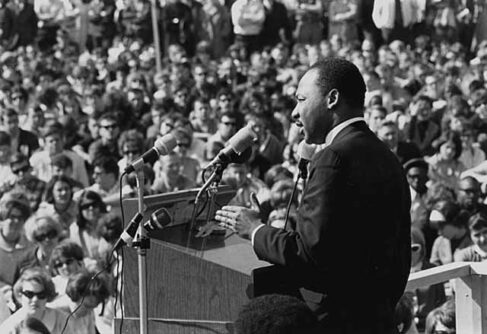Charitable sector leaders have long fretted about the decline in America’s “social capital” -- the network of relationships and organizations that connect neighbors, local leaders, and associations to one another and enable them to help one another in tackling local issues.
Most famously described by Harvard political scientist Robert Putnam in his Bowling Alone: The Collapse and Revival of American Community, the last several decades have seen an decline in the social networks -- forged in bowling leagues, Boy Scouts, business groups, churches, and the like -- that supported a wide range of community and charitable enterprises.
In their new book, America’s Spiritual Capital, Loyola University professor Nicholas Capaldi and business strategist Theodore Roosevelt Malloch suggest that the lament about the decline of America’s social capital is -- not exactly wrong -- but misses the mark. They argue that it isn’t America’s social capital that we should be most concerned about, but America’s “spiritual capital.”
Capaldi and Malloch define spiritual capital as:
the fund of beliefs, examples and commitments that are transmitted from generation to generation through a religious tradition, and the which attach people to the transcendent source of happiness.
Spiritual capital isn’t a new idea: sociologists and political scientists have long recognized the obvious truth that one way people build social networks is through shared membership in a house of worship and faith-based organizations.
What’s unusual in Capaldi and Malloch’s analysis is their argument that spiritual capital is an aspect of social capital; the reverse -- that spiritual capital is an aspect of social capital -- is the usual view. Here’s how they see it:
Spiritual capital is not a mere subset of social capital but is in fact more encompassing . . . spiritual capital is the grand narrative that informs a culture so that all other institutions must be viewed form its perspective rather than vice versa.
Capaldi and Malloch argue that America’s wealth of spiritual capital has been just as important as its economic capital to Americans’ generosity to philanthropic causes and to their flourishing civil society. (They also argue that spiritually rich people are more likely to be rich in worldly things because spirituality encourages personal autonomy and independence -- and at such moments they seem close to offering a version of prosperity theology.)
Capaldi and Malloch also wonder: is American’s spiritual capital in decline? And, if so, what will this mean for America?
If Capaldi and Malloch are right that spiritual capital is even more fundamental than social capital, then one must be all the more worried about the future of American civil society and the charitable sector in particular. The fraction of Americans affiliated with a church or religion is declining: according to The Pew Forum on Religion & Public Life, religious affiliation has fallen off markedly, such that 19% of all Americans -- and 34% of those born since 1990 -- have no religious affiliation. Attendance at a house of worship and religious belief have also fallen off.
Social capital is on the wane -- but spiritual capital seems even more so. To the extent that Capaldi and Malloch are right that American civil society ultimately depends on spiritual capital, we face a future with an ever-more impoverished civil society.






